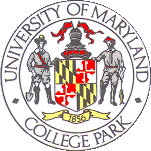



We are being asked to change the way we teach
Why arenít we achieving our goals with non-physicists?
Student responses depend on context: Problem 1
Student responses depend on context: Problem 2
Getting students to know the right answer is not enough: Problem 3
Getting students to solve algorithmic problems is not enough: Problem 4
How can we evaluate a functional understanding or "mental model"?
The Force Concept Inventory (FCI)
The results on the FCI are dismal.
What kind of instructional models produce better conceptual gains?
Tutorials produced significantly higher gains than recitations
How can we improve the situation?
Many new effective instructional models are being developed
| University of Maryland | Physics Department | PERG UMD | EFR Homepage |
|---|---|---|---|
 |
 |
 |
 |